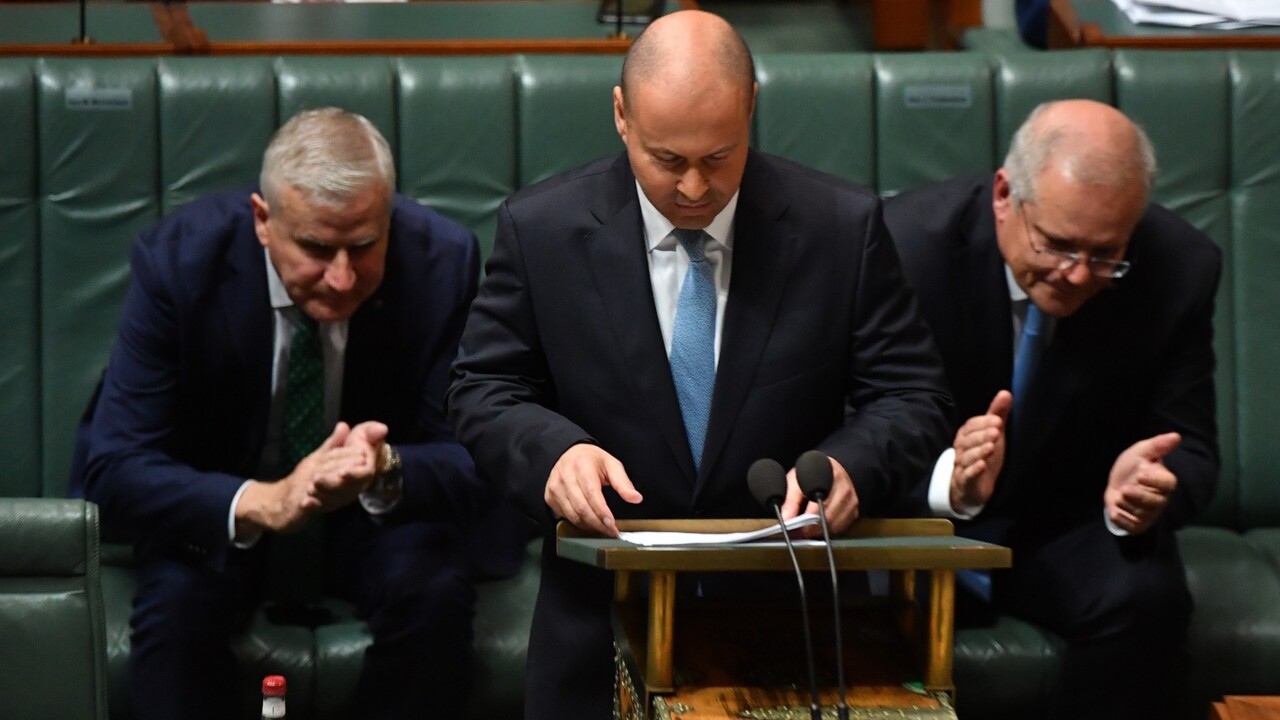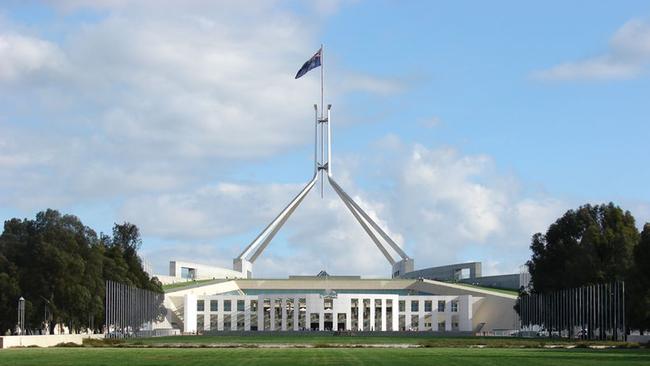Public service to grow by 5400 to 174,300 in $2bn cost blowout
Thousands of extra bureaucrats will be added to the federal government payroll in a Coalition strategy shift that once again feels like it comes from Labor’s playbook.

NSW
Don't miss out on the headlines from NSW. Followed categories will be added to My News.
The public service is about to grow at its fastest rate since Kevin Rudd and Labor took power in 2007 as part of a $2 billion blowout in the cost of the bureaucracy.
Budget papers reveal nearly 5400 staff will be added next financial year, bringing total headcount to 174,300, which is 8700 more than the service’s low point reached in 2015-16 after cuts by former Coalition prime minister Tony Abbott.

Operating expenses are set to hit $78.1 billion, up from $76 billion in 2020-21.
In the first year of the Rudd government, which was 2007-08, the public service expanded by nearly 8000 to 175,500 and ballooned to 182,500 towards the end of the Labor era.
Reductions by the Abbott Coalition government cut this to 165,600 by 2015-16.
Finance Minister Simon Birmingham told The Daily Telegraph “the government has accepted after careful case-by-case assessments, including in some areas of new investment such as aged care and veterans, that it is more efficient and effective to use ongoing staff.”
Senator Birmingham said some agencies had “been using large numbers of contractors” for prolonged periods of time.
“Projected numbers of staff across the public service remain clearly below those from any year of the Rudd and Gillard governments,” he said.
Institute of Public Affairs research fellow Cian Hussey said the bureaucracy was unaffected by the economic devastation in the private sector from lockdown measures.
“We are seeing massive growth in public sector staff who are employed to impose more regulation and red tape,” Mr Hussey said.
Agencies adding considerable headcount include the Australian Commission for Law Enforcement Integrity, which will surge from 64 to 110 employees.
An ACLEI spokesman said the increase supported “the expansion of its jurisdiction” from January 1 this year to oversee the ACCC, ASIC, APRA and ATO.
The Productivity Commission will jump from 162 to 190 staff, which a spokeswoman said was partly due to its “new functions” under the Closing the Gap agreement that aims to improve living standards for Aboriginals and Torres Strait Islanders.
The Clean Energy Finance Corporation will go from 126 employees to 146 while the Future Fund Management Agency will surge to 350 staff from 196 in 2020-21.
A spokesman for the $226 billion fund said “the investment environment is increasingly challenging and these staff numbers will help us continue to prudently invest”.
The fund — and the CEFC — said costs were met from revenue they generated.
Aboriginal Hostels Limited will grow from 331 to 386 staff.
The Department of Prime Minister and Cabinet will expand from 1015 to 1122 in 2021-22.
A PM&C spokeswoman said the extra workers would roll out the “National Strategy to Prevent and Respond to Child Sexual Abuse, the Women’s Economic Security Package, and the Digital Economy Strategy”.
Originally published as Public service to grow by 5400 to 174,300 in $2bn cost blowout





